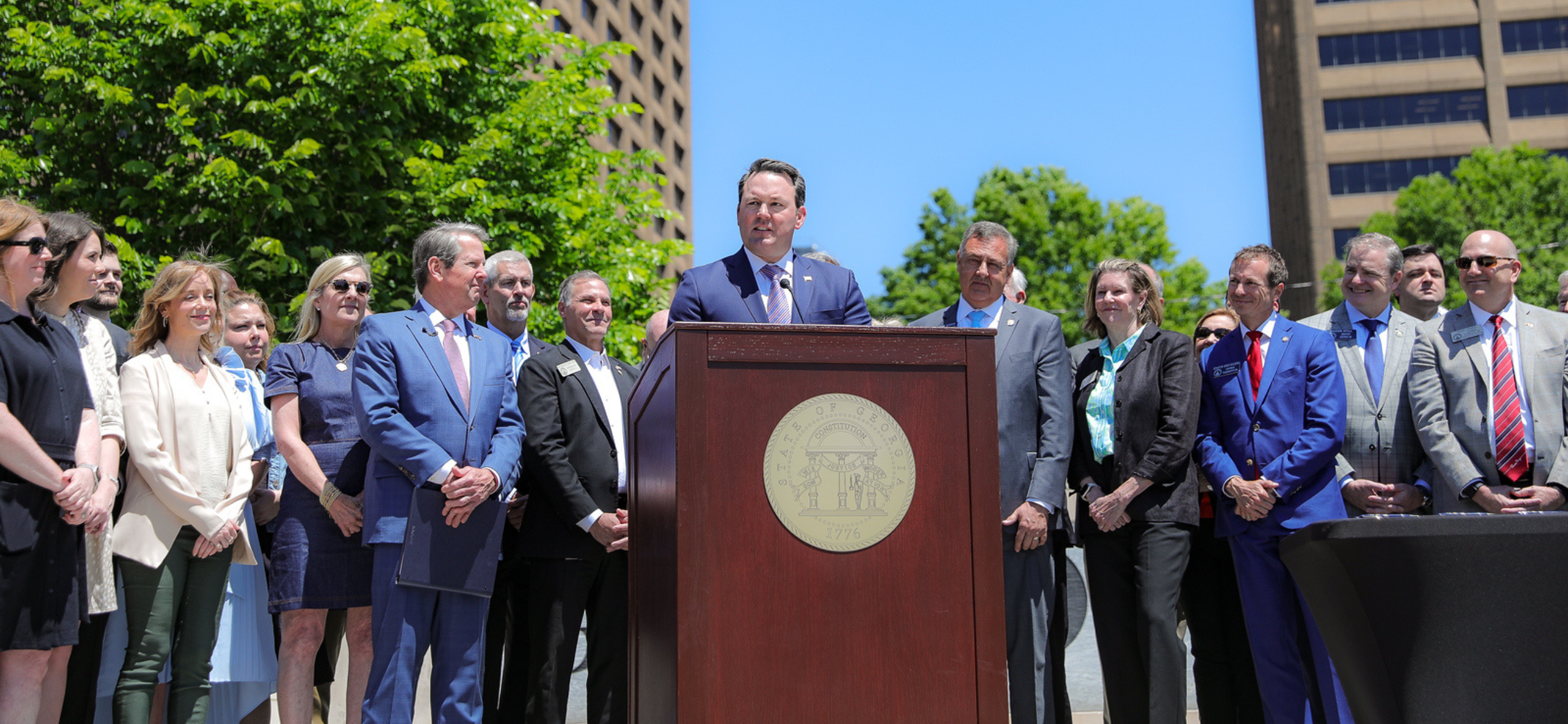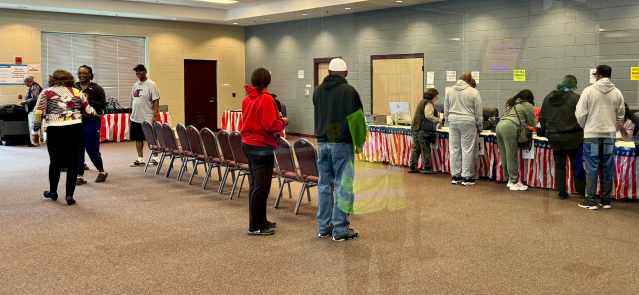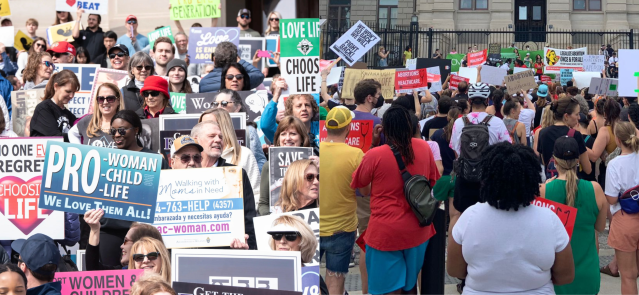Stay ahead of the curve as a political insider with deep policy analysis, daily briefings and policy-shaping tools.
Request a DemoJones notes end of Mental Health Awareness Month by pointing to new legislation, initiatives

Lt. Gov. Burt Jones speaks from the podium before Gov. Brian Kemp signs a number of bills. (Credit: Office of Gov. Brian Kemp)
- Lt. Gov. Burt Jones said the Legislature addressed some key mental health issues.
- SB 351 aims to improve children’s mental health by regulating social media access.
Lt. Gov. Burt Jones, as Mental Health Awareness Month comes to an end, touted the Georgia General Assembly’s recent legislation to destigmatize mental health and improve mental health care access.
“The mental health of Georgians is vitally important,” Jones said in a press release Tuesday. “I am proud of the work we have done in the Senate to address mental health issues within our state, particularly the mental health of children and veterans.”
Senate Bill 351, enacted in April, aims to improve children’s mental health by regulating social media access by minors. In addition, the bill includes initiatives to combat cyberbullying, implement educational programs and increase protections on social media sites.
The Senate also adopted Senate Resolution 527 in February to form the Senate Study Committee on Veterans’ Mental Health and Housing.
The five-member committee includes Sen. Chuck Payne, R-Dalton; Sen. Ed Harbison, D-Columbus; Sen. Josh McLaurin, D-Atlanta; Sen. Shawn Still, R-Norcross; Sen. Rick Williams, R-Milledgeville.
“Strong mental health policy is like a tide that lifts all boats,” McLaurin told State Affairs on Tuesday.
“When people are well mentally, it makes it easier to hold down a job, protect our physical health, get an education and stay out of trouble. And it’s worth focusing on mental health even if only to give people a better chance of finding peace.”
Jeff Breedlove, strategic policy adviser for the Georgia Council for Recovery, told State Affairs Wednesday that accessibility for all veterans would be an important component of the committee’s goals.
“Particularly, we’re concerned that for veterans in rural Georgia, where there’s no MARTA and no Uber service, that the state thinks through how a veteran [can] access the services in the first place,” Breedlove said. “You can create all the programs you want, spend all the money you want, but if a veteran can’t get to the place to get the service, it does no good.”
Breedlove also emphasized that addiction and suicide would be key issues for the committee to deliberate.
Correction: This story has been updated with Jeff Breedlove’s current job title.
You can reach Nava Rawls at [email protected] or on X @navarawls.
A primer on the Nov. 5 ballot measures: What you need to know
In addition to voting for president and down-ballot candidates in the Nov. 5 election, Georgians will decide on a couple of tax measures and whether to create a statewide tax court. Three questions call for a statewide vote, all of which appear at the end of the ballot. The first time most voters see these …
Tuesday’s early voting turnout sets highest 1-day record in a presidential election year
More than 306,000 Georgians voted on the first day of early voting Tuesday, setting the highest one-day early voting turnout in a presidential election year. Tuesday’s statewide turnout of 306,118 voters more than doubled that of first-day early voting for the general election four years ago, state election officials reported just after 8:30 p.m. Tuesday. “It’s …
Georgia Supreme Court restores state’s 6-week abortion ban
The Georgia Supreme Court reinstated the state’s six-week abortion ban Monday, a week after a lower court judge overturned the controversial measure. The court ordered the stay while it considers the state’s appeal of the lower court ruling. The head of an anti-abortion organization praised the Supreme Court’s decision, which went into effect at 5 …
Weekend Read: Georgia abortion clinics see surge after 6-week abortion ban struck down
While Georgia lawmakers seek to restore the state’s six-week abortion ban struck down earlier this week, some abortion clinics are reporting increased activity as women seek help during what some view as a temporary reprieve in the state law. Fulton County Superior Court Judge Robert McBurney on Monday struck down Georgia’s abortion ban, ruling it …




